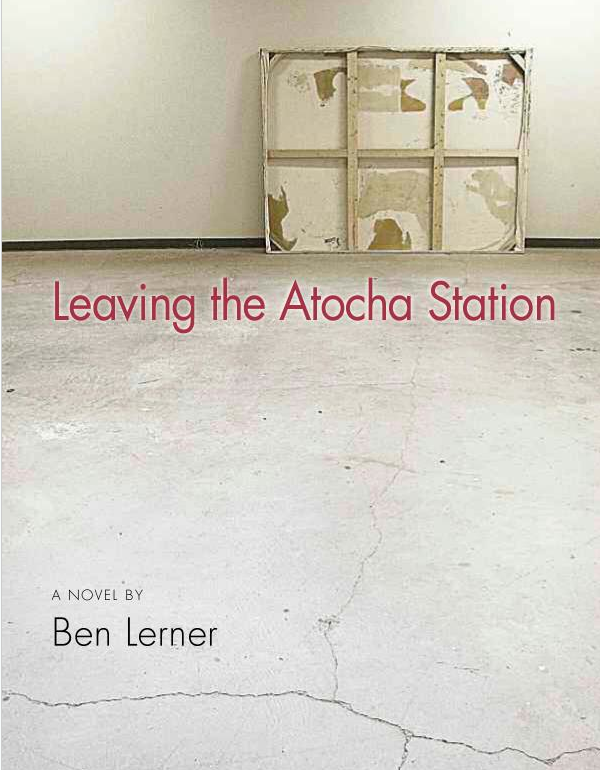Coffee House Press, 2011. Reviewed by Colin Post and Patrick Allen
1. [detail] reception
Out came the handkerchief and the man walked calmly into 56, stood before The Garden of Earthly Delights, considered it calmly, then totally lost his shit.
There is a difference between consumption and reception. In the process of reception, a nervous, bursting sense of attention is paid by the receiver to the thing received; the receiver commits herself to not follow but to find with the received subject their suddenly-conjoined path; and without the frenetic action of both agents, there would be no course at all. Now, look [it] up. The restraint of the screen complicates reception by necessarily modifying the information received. Painter, herald, patron, analyst, hash-dealer, viewer, guard, writhing in a dense, multivalent pile of weeping bodies being slightly tuned under the lens.
2. [detail] excess
When I found a relatively dry, sheltered place, I smoked and watched the faint rain fall into the artificial lake. I had never smoked hash before coming to Spain and, unlike the weed I smoked in Providence, which instantly made me an idiot, the hash usually allowed me to maintain, or at least to believe I was maintaining, the semblance of lucidity, especially after months of habituation.
Character development is designed to be casually ingested. Break [out] the plastic in the event of desperation, puking. After all, money changes hands. When it serves a narrative function, excess becomes a pose: drink floods the mind and various smokes allow one to be properly misplaced in relation to his fellow characters. Flee the room you paid too much for onto a street you couldn’t find.
3. [detail] translation
Something in the arrangement of the lines, not the words themselves or what they denoted, indicated a ghostly presence behind the Spanish, and that presence was my own, or maybe it was my absence; it was like walking into a room where I was sure I’d never been, but seeing in the furniture or roaches in the ashtray or the coffee cup on the window ledge beside the shower signs that I had only recently left.
Translation, a form among many, is not a final, binding transformation but is one stage in a series of developments that an utterance might take. Occasionally, the offended fist arrives before the translation. Bloody pompé, persona, daemonization, miasma, passus, yarn, wanderjahr, sprezzatura, weltschmerz, passus, bildungsroman, proentelepsis, roman á clef, passus, passus, kenosis, apophrades, passus. The failure to translate between the hard rock and water might end in a breathless riverside body. Information demands its conveyance, even if it must resort to those methods most dim and most violent.
4. [detail] vantage
I saw, I might have seen, a dazed teenager with blood all over his face and a paramedic who took his arm and sat him down and gave him something that looked like an ice pack, instructing him to sit and hold it to his head.
Is any vantage ever complete? Screen-in-screen: we are playing a consistently-visible bit-part in the world as we watch it perform itself. Imagine the ever-refreshing webcam that would project you turning toward another lens. You could see them holding their heads. Update: gather the additional (mirrored/cinematic) data of yourself.
5. [detail] spectacle
Or I would take the Metro and experience a sudden jerk in the carriage as the first detonation. I would imagine my friends from the U.S., their amazement and maybe envy at the death I made for myself, how I’d been contacted by History.
We’d like to refrain from attempting to eat what is larger than our collective mouth. It (the active lens of spectacle) resists any possible deviation of interpretation. The eye collects, the crowd collects, the situation develops. Ben, you did it. People remain flammable.
******
BEN LERNER is the author of three books of poetry The Lichtenberg Figures, Angle of Yaw, and Mean Free Path. Lerner has been a finalist for the National Book Award and the Northern California Book Award, a Fulbright Scholar in Spain, and the recipient of a 2010-2011 Howard Foundation Fellowship. In 2011 he became the first American to win the Preis der Stadt Münster für Internationale Poesie. He teaches in the writing program at Brooklyn College. Leaving the Atocha Station is his first novel.

